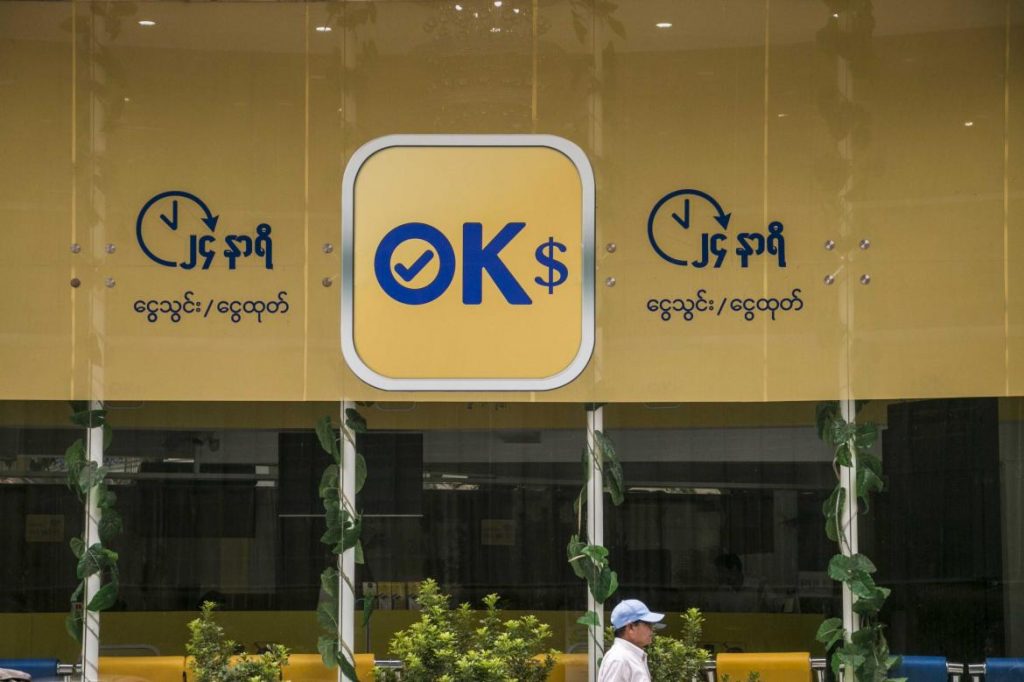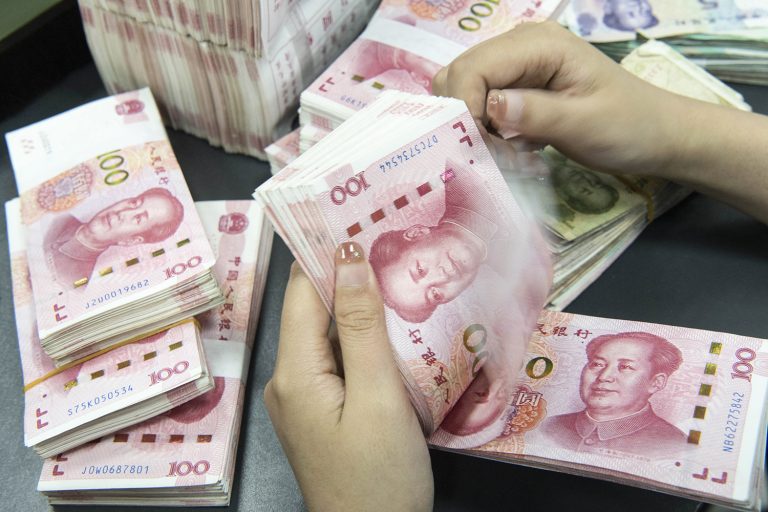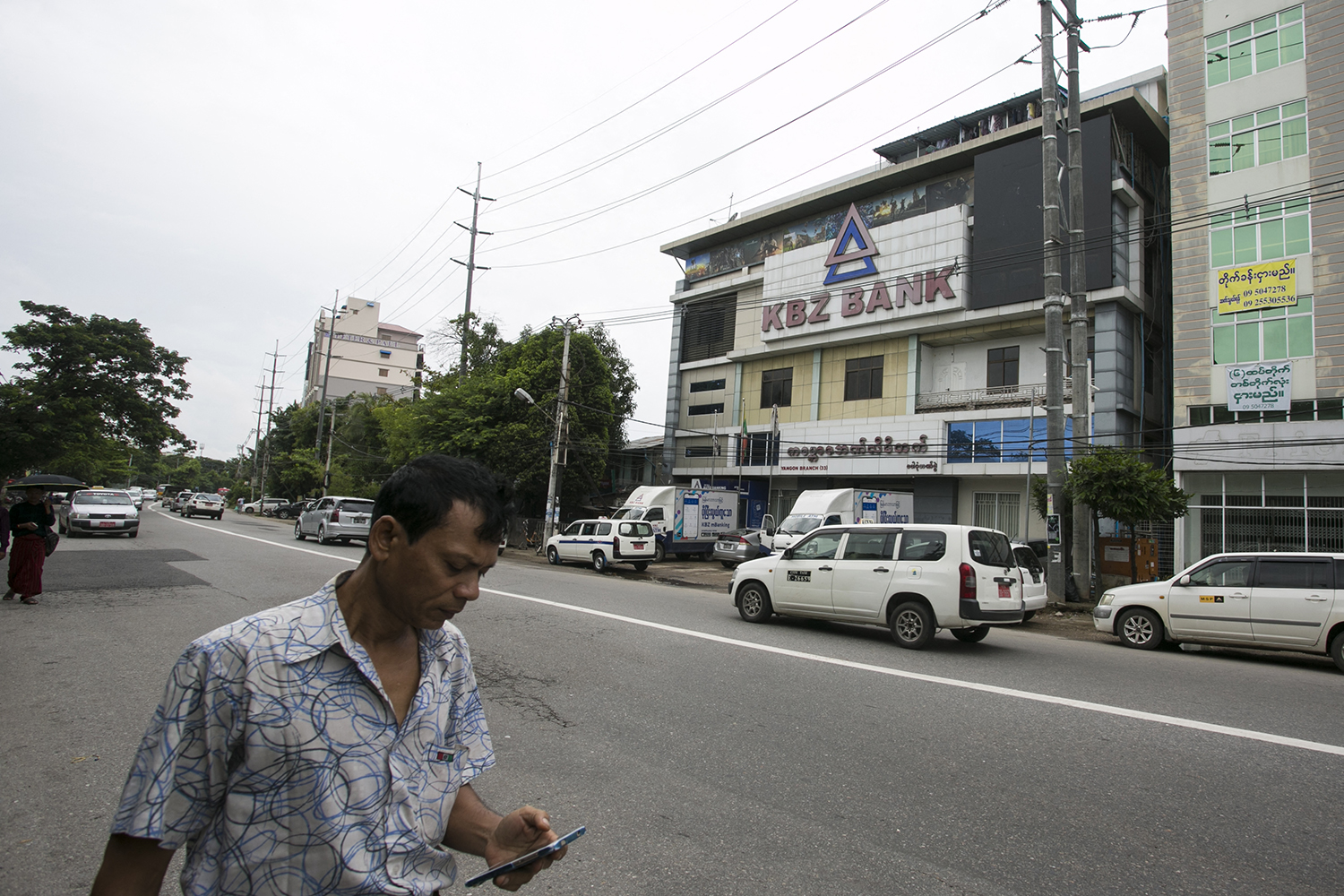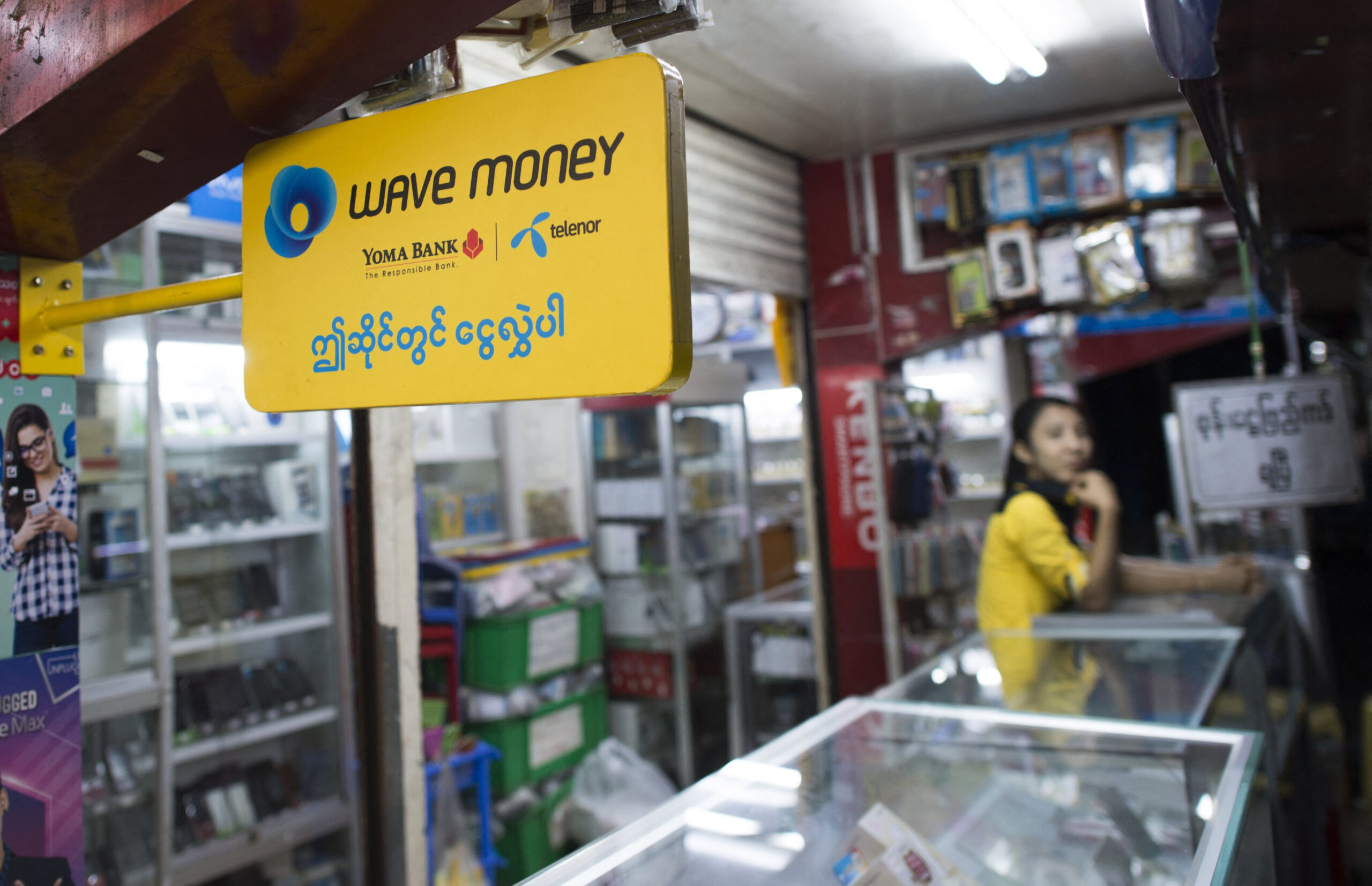By KYAW YE LYNN AND THOMAS KEAN | FRONTIER
YANGON – The Central Bank of Myanmar has issued a Mobile Financial Services licence to OK Dollar, ending uncertainty over the fintech operator’s legal status but in the process raising fresh questions about the application of the licensing process.
Daw May Toe Win, deputy director general in the Central Bank’s Financial Institutions Regulation and Anti-Money Laundering Department, confirmed to Frontier that the licence was issued on August 31 under the March 2016 Regulation on Mobile Financial Services.
The licence is held by Internet Wallet Limited, which launched OK Dollar in June 2016.
“It is the third non-bank financial institution licensed by the Central Bank,” May Toe Win said.
Support more independent journalism like this. Sign up to be a Frontier member.
She declined to comment further.
In a statement, the Central Bank said the licence was issued to OK Dollar in order to expand financial inclusion in the country.
As Frontier reported last month, the company has been operating without an MFS licence since it launched, in apparent violation of the Financial Institutions Law. However, the Central Bank has failed to take any action, saying only that OK Dollar’s application was still being processed.
Terms and conditions
The licence appears to have been granted despite OK Dollar’s terms and conditions of service continuing to fall short of the standards set by the MFS regulation.
As of this afternoon, the terms and conditions for new users – which are available only in English – were unchanged, although they appeared to have been taken down from the company’s website.
A staff member at OK Dollar, who asked not to be named, told Frontier that no changes had been made to the terms and conditions, which relieve the operator of many of the responsibilities that the MFS regulation imposes on licensed operations.
For example, OK Dollar reserves the right to discontinue its service, terminate accounts and retain the balance “if there are discrepancies or inaccuracies in any information or documentation provided to them”. Deposits must also be used within 185 days or “may be forfeited at our discretion”. Similarly, it “reserve[s] the right to suspend or discontinue the OK Dollar services at any time, for any reason or no reason”. However, under the MFS regulation, providers “shall, upon request by a MFS account holder, redeem, at any time and at par value, the money held in the MFS account”.
OK Dollar distances itself from the actions of its merchants and agents. The terms and conditions stipulate that users “assume any loss or liability” resulting from a reload or attempted reload, or withdrawal or attempted withdrawal. It also states that it is “not responsible for any acts or omissions of any third party including merchants, advance merchants, agents or any financial institutions” that use OK Dollar services.
The MFS regulation states that a provider “is legally responsible for the actions of its agent to the extent that they relate to the conducting of MFS transactions and matters connected therewith”. Section 20, meanwhile, states that a provider “shall be responsible for monitoring and supervising the activities of their agents”.
The service also breaches transaction limits. Under the MFS regulation, individual account holders can deposit up to K1 million and transfer up to K200,000 a day and K5 million a month.
The licensing system
Central Bank rules divide mobile-based financial services into two categories: mobile banking and mobile financial services.
While three licences have been issued to non-bank financial institutions under the MFS regulation, many other fintechs have partnered with banks to offer the services through the framework established by the Mobile Banking Directive in December 2013. The first MFS operator, Wave Money – a joint venture among Telenor, First Myanmar Investment and Yoma Bank – received its licence in October 2016, while Ooredoo’s M-Pitesan was approved on July 26.
While Internet Wallet has held a microfinance institution licence for several years, the Ministry of Planning and Finance told Frontier this could not be used to transact with OK Dollar customers who are not clients of its MFI.
As of May its MFI had 524 clients, while OK Dollar claimed in February to have more than 100,000 users.







